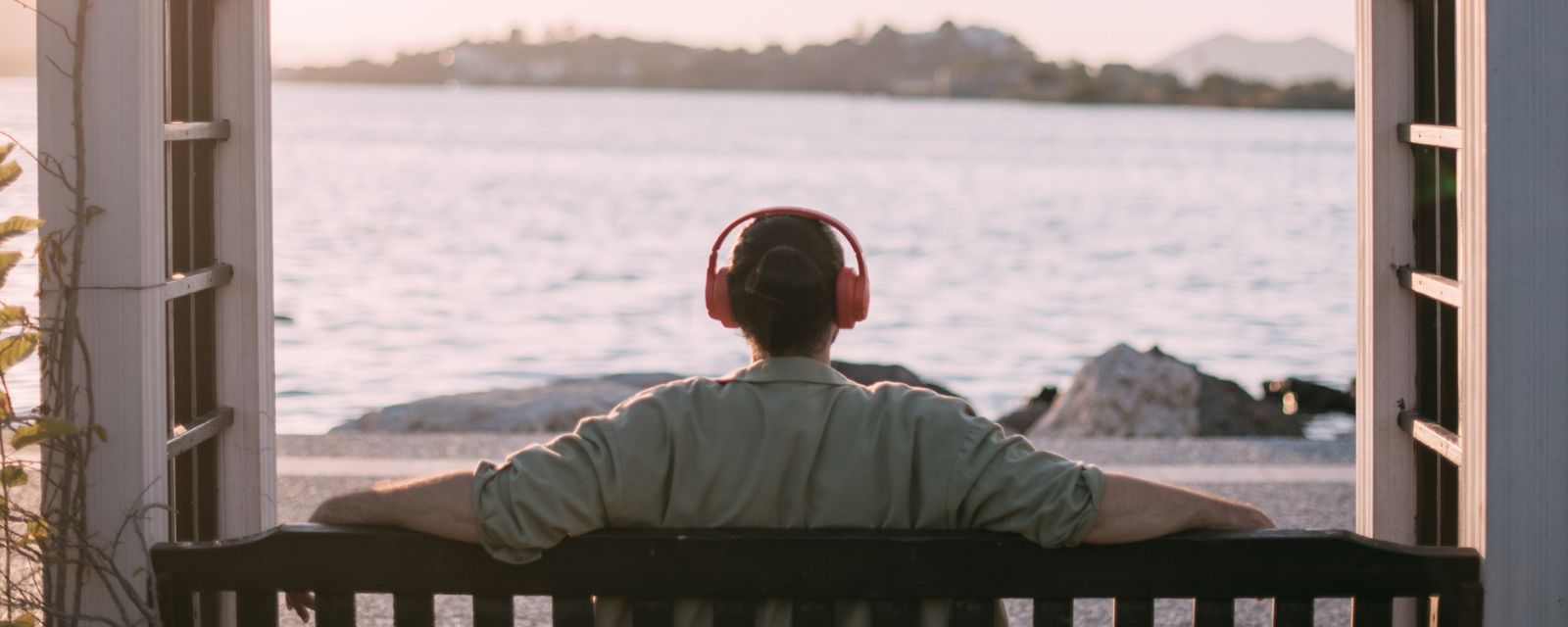The Heart of Puerto Rican Mental Health
Stories have a way of weaving themselves into the fabric of our lives, shaping how we see ourselves and the world around us. For the Puerto Rican community, mental health is more than just a personal journey—it’s a reflection of cultural values, traditions, and community bonds that influence perceptions, responses, and healing.
Growing up in Puerto Rico, I learned early on that discussions about mental health often carry the weight of cultural expectations. Silence can be a shield, strength is often found in resilience, and seeking support can sometimes feel like a challenge to our collective identity. But beneath these layers lies a rich tapestry of stories—stories of endurance, love, faith, and community—that shape how mental health is understood and addressed.
The Cultural Lens on Mental Health
In Puerto Rican culture, family is at the heart of everything. It’s a place of unconditional support, shared history, and collective identity. Our traditions emphasize that we are always part of a larger family network, whether biological or community-based. This sense of interconnectedness provides comfort and strength, but it also comes with expectations.
However, alongside this deep-rooted family importance, there’s an equally strong emphasis on independence—especially from a young age. Many Puerto Rican families practice what’s often called “tough love,” where discipline, high expectations, and emotional resilience are instilled early on. Children are encouraged to be self-reliant, to withstand hardships silently, and to hide vulnerabilities to maintain the family’s honor.
This duality creates a complex dynamic: on one hand, family is a source of support and identity; on the other, there’s often pressure to be strong, independent, and emotionally resilient—sometimes at the expense of openly expressing struggles or seeking help.
The Challenge of Boundaries and Emotional Overlap
One of the most nuanced aspects of Puerto Rican culture is how boundaries are often blurred. Family members tend to be deeply involved in each other’s lives, offering support but sometimes crossing personal boundaries. The idea of respecting individual emotional space can be less emphasized than in Western cultures.
This can make setting boundaries difficult—both for the individual trying to protect their mental health and for family members who want to help. For example, a person might feel overwhelmed but hesitate to communicate their needs clearly, fearing they will disappoint or hurt their family. Conversely, family members might push to be involved in every aspect of someone’s life, blurring lines between caring and controlling.
The lack of clear boundaries can lead to emotional exhaustion, codependency, or feelings of being overwhelmed—especially for those navigating mental health challenges. It’s a cultural pattern that emphasizes closeness and support but can unintentionally hinder personal growth and self-care when boundaries are not respected or understood.
Gender Expectations and Emotional Expression
A significant aspect of our cultural landscape is how gender influences perceptions of mental health. For women, expressing strong emotions—whether sadness, anger, or frustration—has historically been seen as “overemotional” or “crazy.” Women who display intense feelings risk being labeled as unstable, irrational, or even mentally ill. This stigma discourages open emotional expression and can force women to hide their true feelings, which only deepens their internal struggles.
For men, traditional machismo emphasizes stoicism and emotional restraint. Showing vulnerability, sadness, or fear can be seen as weakness or unmanliness. Men who do express their emotions often face dismissiveness or ridicule, reinforcing the idea that strength means suppressing feelings altogether.
This double standard impacts how both women and men experience and address mental health. It fosters a cultural environment where emotional expression is discouraged, and seeking support is viewed as a sign of weakness—making it harder to acknowledge struggles and ask for help.
Tough Love and Independence: A Cultural Paradox
The Puerto Rican family’s emphasis on tough love teaches resilience and self-reliance. From a young age, children are often pushed to be independent, to handle their problems quietly, and to develop emotional strength without showing vulnerability. While these traits foster perseverance, they can also create barriers to open discussions about mental health.
This cultural paradox—where family support coexists with high expectations of independence—means that many individuals internalize their struggles rather than seek help. Admitting vulnerability can feel like betraying the values of strength and self-sufficiency that are deeply ingrained in our community.
The Difficulty of Boundaries and Emotional Overlap
Adding to the complexity, the difficulty in establishing healthy boundaries within families and communities can hinder mental health support. Our culture’s emphasis on closeness and collective support often leads to overlapping roles—where family members are both caregivers and enforcers, supporters and enforcers of toughness. This can make it challenging for individuals to set limits around their emotional needs.
When boundaries are not clearly defined, feelings of being overwhelmed or suffocated can grow. For someone struggling with mental health, this lack of space can intensify feelings of confusion, guilt, or frustration. Learning to establish and respect boundaries is essential, yet often difficult, in a culture where emotional closeness is prized but boundaries are less emphasized.

Traditions and Community: Guardians of Resilience
Our traditions—whether in the form of religious faith, music, dance, or storytelling—serve as vital sources of resilience. The vibrant rhythms of bomba and plena, the heartfelt prayers in our churches, and the stories passed from elders all carry messages of hope and perseverance.
Community influences also play a powerful role. In Puerto Rico, asking for help can feel like breaking a social code, but community members often step in as caregivers, confidants, and healers. Sharing stories of hardship and triumph keeps us connected, reminding us that we are not alone in our struggles.
Perceptions of Mental Health
Despite these strengths, mental health still faces challenges in our community. Stigma remains—a lingering shadow that discourages many from seeking support. Sometimes, mental health issues are seen as a sign of weakness or moral failing, rather than health conditions deserving compassion and treatment.
Yet, there is a quiet shift happening. Younger generations and mental health advocates are beginning to embrace open conversations, recognizing that seeking help is an act of strength, not weakness. Cultural narratives are slowly evolving to include mental health as a vital part of overall well-being.
Embracing Openness and Acceptance
My personal connection to this story is rooted in my own journey—balancing cultural expectations with a deep understanding of mental health. I’ve seen how storytelling, whether through personal narratives or community conversations, can foster acceptance.
Just like characters in a novel or film, our community members are complex—flawed, resilient, hopeful. When we share our stories openly, we break down barriers, challenge stereotypes, and create space for healing. We learn that vulnerability is not a sign of weakness but a bridge to connection.
Moving Forward: The Power of Awareness and Support
Promoting awareness begins with understanding—recognizing the cultural values that shape perceptions and respecting the traditions that nurture resilience. It’s about encouraging conversations that honor our stories while inviting new narratives of acceptance and hope.
Seeking support is a courageous act. Whether through therapy, community groups, faith-based initiatives, or simply sharing with loved ones, taking that step can transform lives. Our stories are still being written, and within them lies the potential for growth, healing, and renewal.
A Personal Reflection
As someone who holds both a cultural and professional understanding of mental health, I invite you to reflect on your own stories. How has your community shaped your view of mental health? Which narratives have strengthened you, and which ones need rewriting?
Let’s honor our past, embrace our present, and look to the future with hope. Because in our stories—individually and collectively—lies the power to heal, to understand, and to thrive. Remember, your story matters. Whether it’s shared in whispered family conversations or shouted from mountaintops, your voice can help reshape perceptions, foster acceptance, and nurture healing in our beautiful Puerto Rican community.
Additional Resources
- Linea PAS - Crisis Intervention and Suicide Prevention
- Esperanza Program - Puerto Rican Cultural Center (PRCC)
- The Power of 'Cuento:' Healing Through Storytelling - Ixa Sotelo
All material provided on this website is for informational purposes only. Direct consultation of a qualified provider should be sought for any specific questions or problems. Use of this website in no way constitutes professional service or advice.




